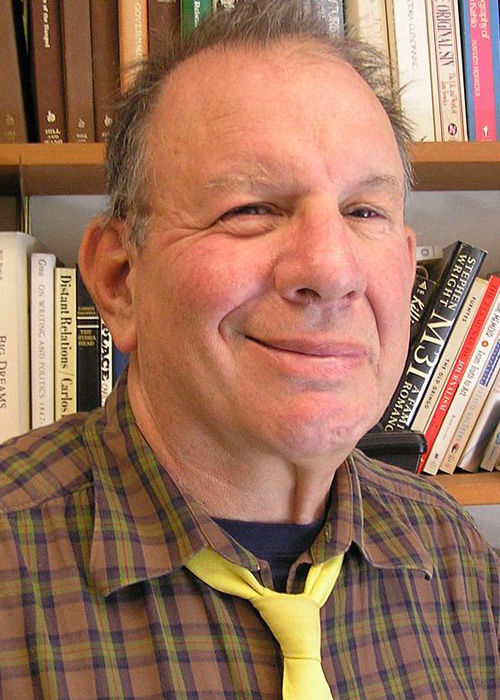The “big day” is coming. No, this “big day” is not the day to file income tax returns. Nor is it Mother’s Day that’s celebrated this year on May 14. In this instance the “big day” is April 20, known to marijuana smokers, growers and merchants around world as “4/20.” The holiday has been celebrated ever since the early 1970s when a group of students from Marin began to gather on April 20 to smoke dope and get high. Indeed, many stoners take off from work, stay home, roll joints and smoke steadily. For them, it’s as much a holiday as Memorial Day or Flag Day.
Over the years, the nature of the celebration has changed as customs and laws have changed, and as newer generations of pot smokers have joined older generations. But what has remained the same over the past 40 or so years, is a reverence for cannabis and a willingness to enjoy it with members of the cannabis tribe, sometimes in public, sometimes in private.
“4/20” was originally meant to be code understood only by those on the inside of the marijuana culture.
At OrganiCann, one the biggest and best medical marijuana dispensaries in northern California, Dona Frank and her team began to prepare for 4/20 a month ahead of time. From years of experience, they knew that the store would be packed, business brisker than on any other single day of the year and that they would have to plan ahead if they didn’t want to descend into chaos.
Frank has been smoking marijuana ever since she was a teenager in the 1970s growing up in Detroit, Michigan. She’s been celebrating 4/20 almost all her adult life and she’s adhered to her principles and her mission: to provide organic medicine for patients in need, especially women.
A pioneer in her field, Frank is one of the few women in Sonoma County to break the glass ceiling in the marijuana world and to serve as the top executive of a cannabis company.
“For every 100 men in the marijuana industry there are probably only five women,” she told me on a cloudy morning before the dispensary — located on Todd Road in Santa Rosa — opened for business. When women get involved, it’s often as cooks and bakers who make edibles such as cookies, though they are also slowly becoming farmers.
Frank does everything in her power to encourage women to join the marijuana industry. That means hiring women and promoting them.
“At OrganiCann, we’re cultivating and training women to be entrepreneurs,” Frank told me.
Two of her general managers, Lauren Gordon and Surina Sisavath, are both young mothers with toddlers. Moreover, at a morning meeting with most of the staff at OrganiCann, there were 12 women present along with seven men.
Frank says she aims for an environment in which there’s trust, cooperation and respect and that she’s still working on making those goals a reality.
For decades, women were reluctant to enter the marijuana field, especially if they had young children. If they were arrested they ran a big risk: a court might find them unfit to be mothers and place sons and daughters in foster care.
Gordon and Sisavath have come a long way since they first entered the field. They both share Frank’s passion for cannabis and they both practice her core values. So do all of the employees that I met, including a young Laotian woman and a young Palestinian woman who were both looking forward to 4/20. Like many local cannabis businesses, OrganiCann has an ethnically diverse work force.
Sisavath told me, “Dona found me 10 years ago when I was 18 and has taught me almost everything I know about running a dispensary.” Gordon added, “We’re getting a great education here at OrganiCann. Better than you could get at an Ivy League school and better than from reading a book or watching a PowerPoint presentation.”
Gordon worked in a pharmacy for many years. “That’s where I saw real drug addiction,” she said. “It was painful to watch.”
Frank told me that in order to run a successful cannabis dispensary one has “to be flexible, consistent, innovative and revolutionary, to look for the newest, best, brightest minds and to learn from them.” She calls that kind of looking “cool hunting.”
One of the coolest things that OrganiCann does is to sponsor an art competition and to publish the winning entries in a colorful book called “High Art!” This year over 2,500 works of art from 60 different cultures were entered. Not surprisingly, much of the work features cannabis and cannabis smokers. Some of it is erotic. Much of it might be called psychedelic.
After all these years, Frank says that it’s not easy to run a successful marijuana dispensary. Banks won’t take money if they know it’s from the cannabis industry. Frank says that landlords often charge dispensaries higher rents than they charge other businesses. Then too, there’s a shrinking pool of workers to draw from. The industry is also volatile and in a state of transition.
“No two days are the same,” Frank said. “We have to think on our feet.” She added, “Just the other day a truck smashed into our dispensary in Hopland. We’re still open, but it was traumatic.”
One big thing that hasn’t changed ever since 4/20 was first celebrated is that consumers still want to roll and smoke joints. Only eight out of 100 medical marijuana patients who enter OrganiCann buy edibles. The sales force is trying to sell cannabis “topicals,” including creams and lotions, that are effective for reducing pain and inflammation. It’s an uphill battle.
Eight hours a day, seven days a week, Dona Frank’s marijuana shop is open for business. This year, 4/20 promises to be bigger than ever before. To enter the premises you must show a valid California driver’s license and a doctor’s recommendation for cannabis. Security is tight. No one slips through the guards.
“4/20 is a workday for all if us,” Frank told the staff at their weekly meeting. No one looked disappointed. Frank added, “It’s going to be a blow-out. We have 30 days to get ready. We’ll need every single one of them.”
Jonah Raskin, a professor emeritus at Sonoma State University, is the author of Marijuanaland, Dispatches from an American War, published in French as well as English, and shares story credit for the feature length pot film Homegrown.









